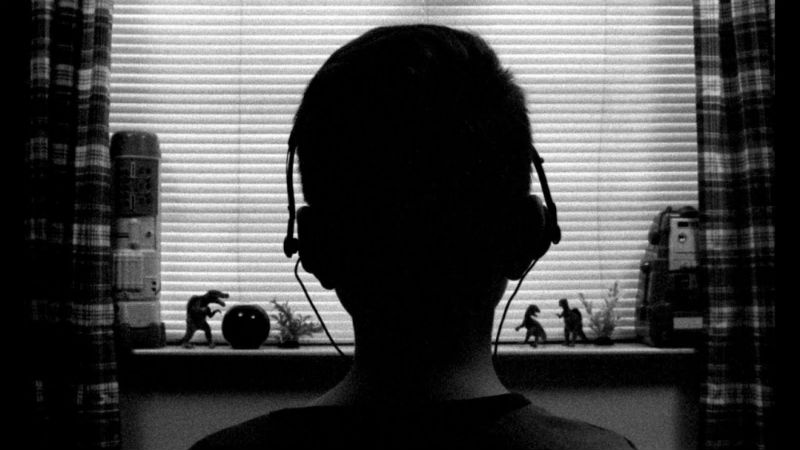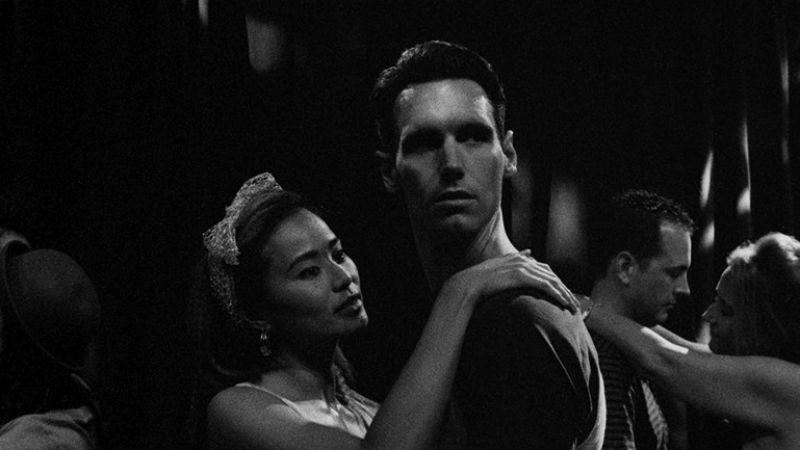QUICK SNAP: LIVE FROM TALLINN
A man wakes up in hospital, clearly traumatised. His head is bandaged. He has no idea who he is beyond his name, Rok (Jure Henigman). His girlfriend Rina (Živa Selan) drives him home.
When the door of the social housing apartment opens, and the woman inside (who we later realise is his mother, played by Nataša Barbara Gračner) realises who it is, she tries to shut the door but not before he can get a foot in. He forces entry, and the lady social worker explains that this is the last address he remembers, that he should regain his memory in time. And already, he remembers a name, Jure (Timon Sturbej). Who turns out to be his little brother. His brother at his mother’s insistence makes up the bed in the brother’s room.
Rok hangs around on walkways in Jesenice, as the local railway station is named, walks through an underpass to a cafe where he asks after Damjan (Jurij Drevenšek), another remembered name, who he finds doing his day shift as a watchman in a school. Back at home, his girlfriend Rina (Živa Selan) brings over some of his stuff. At night, he watches Jure spraypaint graffiti images. After the pair of them have a run in with the man whose wall it was, they watch an old video of people fleeing Rok as he wields an axe. Later, says Jure, who only heard the details second hand, things got really messy as Rok cracked a guy’s head open.
Rok calls in on Denana (Tamara Avguštin) and her wheelchair-bound husband Selim (Blaž Setnikar). Later, his mother tells him how he and Selim got in a fight which crippled Selim. Later still, Damjam suggests that now he’s Back, Rok will want revenge. This is news to Rok. He visits an Inspector Janežič (Jure Ivanužič) at the police station who tells him he’s forgotten that he was “a good guy who left all this”. That doesn’t stop him and his mother talking Jure into leaving for Austria, where life chances are better.
He watches a video of him and his girlfriend fooling around as she cooks dinner: happier times. He realises he has a key, so travels over to her apartment and lets himself in. She’s not pleased. So he returns the key. Later, he gets attacked on a covered pedestrian rail / road bridge after doing his grocery shopping by people who know him from before, and who Jure – who is now back – is with.
The whole thing benefits considerably from urban Slovenia locations, crisply shot by cinematographer Ivan Zadro. The shot towards the end when Rok gets attacked is particularly impressive: a long shot of the covered pedestrian bridge as he walks across screen left to right, two men running towards him right to left and one running from behind him left to right to deliver the knockout head blow with a handheld object.
You’ll also remember shots of railway stations at night, and trains passing through the city. There’s a clear sense of purpose to the whole film and Jan Vysocky contributes an eerie orchestral score that adds much to the overall atmosphere. As a picture of a man suffering memory loss trying to reconnect with his past, which is how it sels itself, the piece does what is says on the tin. It isn’t likely to want to make anyone move to Slovenia anytime soon, though.
Wake Me premieres in the 26th Tallinn Black Nights Film Festival.










